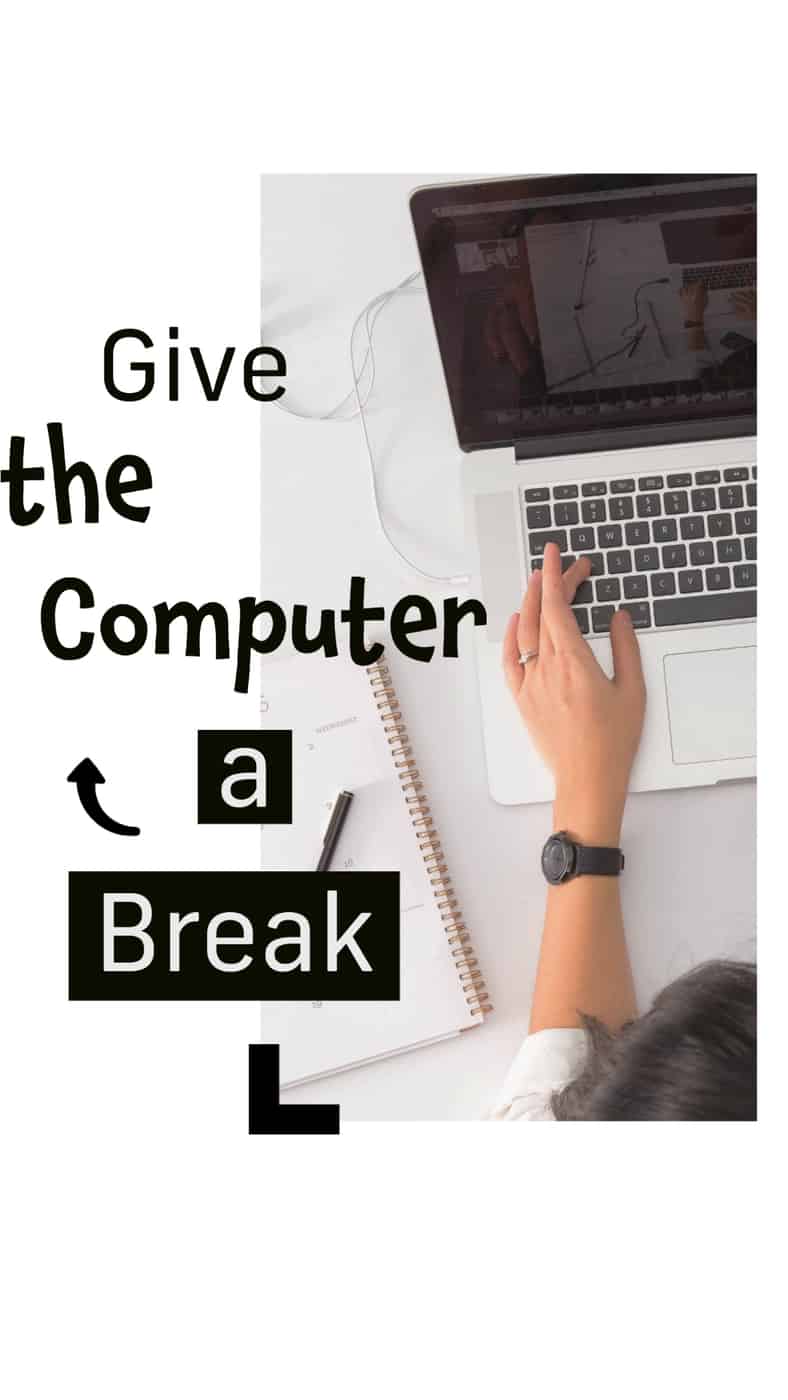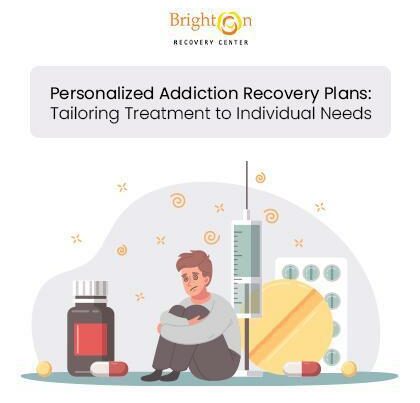Give the Computer a Break

Computers have become a large part of daily life, as much of someone’s own entertainment or work can take place on some kind of computer. While these technological advances certainly have their benefits, it is also important to give the computer a break every once in a while. Especially for someone in recovery from addiction or suffering from mental health disorders, giving the screens a break can help someone improve their overall mental health. However, taking a break from the computer doesn’t mean that someone can’t use it at all, as it can be incredibly helpful for keeping contact with others and for one’s self-care. It is important to moderate the amount of time that someone engages with computers, especially when it comes to entertainment and social media. While giving the computer a break may be especially difficult during the pandemic, it is still important for one’s own health to search for alternatives from time to time.
Computers have become a large part of daily life, as much of someone’s own entertainment or work can take place on some kind of computer. While these technological advances certainly have their benefits, it is also important to give the computer a break every once in a while. Especially for someone in recovery from addiction or suffering from mental health disorders, giving the screens a break can help someone improve their overall mental health. However, taking a break from the computer doesn’t mean that someone can’t use it at all, as it can be incredibly helpful for keeping contact with others and for one’s self-care. It is important to moderate the amount of time that someone engages with computers, especially when it comes to entertainment and social media. While giving the computer a break may be especially difficult during the pandemic, it is still important for one’s own health to search for alternatives from time to time.
Limiting Social Media
Social media has permeated almost all realms of life and has a place in one’s own personal life, professional life, and even found its place for politics. Social media has made it easier than ever for people to connect with each other. However, this is also a double-edged sword. While keeping connected with others is especially important during recovery from addiction or combating a variety of mental health disorders, it also opens a path to new stresses. Social media can give someone a voice, but also can amplify other negative effects, such as depression and anxiety. Depression and anxiety are already common for someone to experience during addiction recovery, and it can be incredibly unhealthy to also be experiencing these emotions from another source. Social media can cause these feelings by constantly exposing someone to the lives of others. While this can be good and bring new ideas, it can also very easily lead to someone feeling as if they are constantly being compared to everyone else around them. Seeing someone going on vacation can make someone feel jealous that they don’t have that opportunity, and watching others make professional strides may lead to unfair comparisons within one’s self. If someone is already feeling shame or guilt about addiction, or experiencing a large degree of anxiety or depression, constant exposure to social media can accentuate these feelings and leave someone feeling even worse than they were before.
Finding Multiple Forms of Entertainment
Media therapy can be very useful in recovery. Using movies, or even video games, can help someone experience their emotions through a safe medium and allow for character studies that may help them better understand their own mental health. However, excessive use of these mediums for entertainment can be detrimental as well. While these media outlets have their uses, they need to be accompanied with other forms of therapy as well. Video games and movies can further feelings of isolation if used exclusively. Isolating oneself while playing games can further feelings of anxiety and depression as well, and overall feelings of isolation are often the first signs that someone is in danger of a relapse. There is a necessary social component to recovery from addiction and its various co-occurring mental health disorders, and it is important to balance one’s use of the computer with other forms of entertainment and interaction in order to create a healthy overall path to recovery.
Watch Your Health
Social media, video games, and most other uses of the computer screen aren’t typically associated with an active lifestyle. In recovery, it is important to keep physically active in order to keep stress and anxiety from becoming too pent up inside one’s mind. However, there is another negative health aspect that someone may experience with excessive usage of a screen in their daily lives which can impact on someone’s sleep cycle. Exposure to electronic media is a constant stimulus for the mind and can make getting to sleep even more difficult. Structure and schedules are very important in recovery, as well as rest for the mind–all of which can be compromised with excessive use of a computer screen. Inconsistent sleep patterns can lead to exhaustion and fatigue and can make someone more susceptible to the mental trials that come with recovery and mental illness. Being well-rested not only helps someone learn new coping strategies, but it also aids in their ability to think clearly when the time comes for them to be implemented.
While no part of this argues that someone can’t use computers at all in recovery, it is important to watch exactly how much time that someone spends in front of a screen, as well as what they are doing with their time in order to balance all their needs in recovery. Computers hold a lot of benefits in someone’s life, assuming it is used in moderation. Keeping a schedule of how many hours one spends in front of a screen each day, as well as their reasons for being there, can help each person balance their own recovery.
Balancing the difficulties of each day in recovery can be a difficult task. However, it is important to find a variety of ways that someone can express themselves and interact with others in a healthy, positive way. At Brighton Recovery Center, the importance of community and various therapy models are constantly on display. With a variety of inclusive activities incorporated across their large, six building campus, there is always a place for each person to work towards their own recovery goals while continuing to learn new coping mechanisms and life skills. With programs ranging from outpatient and partial hospitalization programs to inpatient care, and an inclusive community center with activities and job experience opportunities for those interested, there is always a new way to tackle the difficulties present throughout recovery at Brighton. For more information on how Brighton Recovery Center can help you, or to speak to a professionally trained staff member about your unique situation, contact us today at (844) 479-7035.



